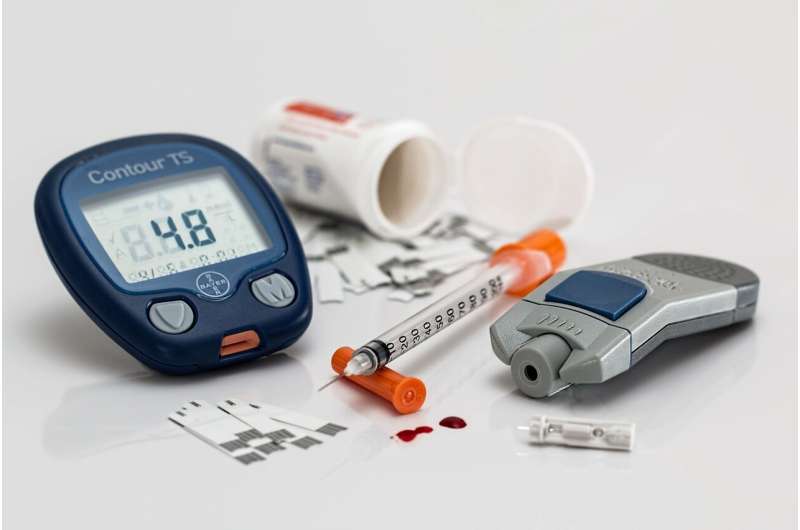Credit: CC0 Public Domain
People of South Asian and African/African Caribbean ethnicity are more likely than those of European ethnicity to develop type 2 diabetes, as well as cardiovascular disease complications of diabetes such as heart attacks and strokes. A study published in the open access journal PLOS Medicine by Sophie Eastwood at University College London, United Kingdom, and colleagues suggests people of African/ African Caribbean ethnicity with type 2 diabetes and people of South Asian ethnicity were less likely to receive guideline indicated statins than people of European ethnicity. Statin treatment lowers blood cholesterol and reduces cardiovascular complications in people with diabetes.
Type 2 diabetes is a potent risk factor for cardiovascular disease, linked to 17.9 million deaths worldwide per year, 80% of which are due to heart attacks and stroke. Studies suggest ethnic differences exist in statin prescribing for people with diabetes. To investigate ethnic differences in guideline-indicated statin prescribing for people with type 2 diabetes, researchers accessed a database of 12 million anonymized primary care records from 836 practices in the United Kingdom. They identified 31,039 cases of type 2 diabetes diagnosed between 2006 and 2019. They then compared rates of statin initiation for people of European, South Asian and African/ African Caribbean ethnicity, adjusting for differences in socio-demographics, healthcare usage, and cardiovascular risk factors or co-morbidity across the three groups.
The researchers found that people of African/ African Caribbean ethnicity with type 2 diabetes were 24%, and people of South Asian ethnicity 9%, less likely to receive guideline-indicated statins than people of European ethnicity. The study was limited in that the authors were unable to identify specific reasons for the inequity in statin prescribing across different ethnicities. Future studies are needed to fully explain the prescribing disparities across different ethnic groups.
Dr. Eastwood adds, "Statins lower cholesterol and are a crucial way of reducing risks of heart attack and stroke in people with type 2 diabetes; we estimated that by abolishing ethnic differences in statin prescribing, up to 12,600 heart attacks and strokes could be prevented in people currently affected by type 2 diabetes in the UK."
The authors conclude, "Further research must urgently seek explanations for under-prescribing of statins, particularly in African/ African Caribbean groups. If our findings are corroborated, a nationwide strategy for identifying prescribing inequities, providing targeted education, and prescribing interventions, followed by re-audit until equitability is achieved, is imperative and could lead to the prevention of substantial cardiovascular morbidity."
More information: Sophie V. Eastwood et al, Ethnic differences in guideline-indicated statin initiation for people with type 2 diabetes in UK primary care, 2006–2019: A cohort study, PLOS Medicine (2021). DOI: 10.1371/journal.pmed.1003672
Journal information: PLoS Medicine
Provided by Public Library of Science





















